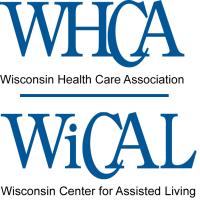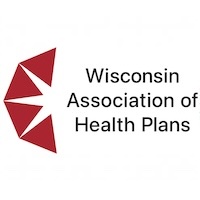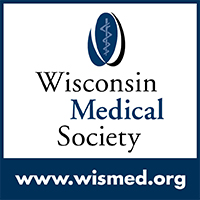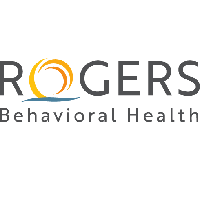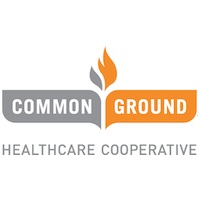
Partnership Program funds research in antibiotic-resistant organisms, HIV, arthritis, TB, vision loss
FOR IMMEDIATE RELEASE
Date: Dec. 18, 2014
Partnership Program funds research in antibiotic-resistant organisms,
HIV, arthritis, TB, vision loss
The Wisconsin Partnership Program at the University of Wisconsin School of Medicine and Public Health recently awarded five New Investigator grants totaling nearly $500,000. The two-year projects will focus on antibiotic-resistant organisms, the human immunodeficiency virus (HIV), rheumatoid arthritis, tuberculosis (TB) and age-related macular degeneration.
The Partnership Program’s competitive New Investigator Program supports innovative research and/or educational approaches that address Wisconsin’s public health issues.
Fighting antibiotic-resistant bacteria
Dr. John-Demian Sauer, assistant professor of medical microbiology and immunology, received $100,000 to address the growing number of infections caused by antibiotic-resistant organisms. The societal cost of these infections is estimated at more than $50 billion, and without significant investment in discovering and developing new antibiotics, previously innocuous infections will once again be life-threatening.
This project will study a new antibiotic drug target and the compounds that inhibit it. The drug target identified by Dr. Sauer and his team re-sensitizes antibiotic-resistant bacteria to penicillin, amoxicillin and other widely prescribed antibiotics.
Genetic and biochemical experiments will be used to understand the function of the drug target in Methicillin-resistant Staphylococcus aureus (MRSA). The long-term goal is to advance the development of the drug target as a new combination therapy approach to combat antibiotic resistance.
HIV infection prevention
Dr. Ryan Westergaard, assistant professor of infectious disease, received $99,882 to increase adoption of pre-exposure prophylaxis (PrEP) among young black gay and bisexual men at risk of human immunodeficiency virus (HIV) infection. Strong evidence suggests that an antiretroviral pill taken once daily can prevent HIV infection; however, very few people use it.
This project will collect information about the reasons for the low uptake of PrEP among at-risk men in Milwaukee, and researchers will use the information to develop a brief computerized intervention that can be used in community-based prevention settings. The long-term objective of the project is to eliminate racial disparities in HIV in Wisconsin by delivering high-impact, multi-component HIV prevention services to at-risk men.
Implications of genetic variants in rheumatoid arthritis
Dr. Miriam Shelef, assistant professor of rheumatology, received a $99,997 grant to study how genetic variants associated with rheumatoid arthritis cause disease. Rheumatoid arthritis is a relatively common inflammatory disease that causes joint destruction, generalized inflammation and premature death.
This project will create a repository of clinical information, DNA and blood products that will be used to determine how genetic variants alter immune cell function in rheumatoid arthritis. The results will help researchers develop tests to identify people at risk of developing rheumatoid arthritis as well as subsets of rheumatoid arthritis patients who might benefit from specific treatments. They also will help researchers develop treatments that target different parts of the disease process than are currently targeted.
Controlling drug-resistant TB
Dr. Caitlin Pepperell, assistant professor of medicine and medical microbiology and immunology, received a $100,000 grant to study how drug-resistant tuberculosis (TB) evolves during infection. The goal of the project is to develop better vaccines and other therapies to treat and prevent TB.
Researchers will analyze data from Mycobacterium tuberculosis (M.tb) in people with TB to understand how these bacteria evolve. This knowledge is needed to understand why TB must be treated with multiple agents, to determine whether there are alternative methods of eradicating bacterial populations, to better understand the emergence of drug resistance and to develop more effective strategies of preventing its emergence.
Macular degeneration treatment
Dr. Aparna Lakkaraju, assistant professor of ophthalmology and visual sciences, received a $99,000 grant to evaluate existing FDA-approved drugs as potential therapies for age-related macular degeneration (AMD). Approximately 50,000 state residents are living with advanced AMD – the most common cause of irreversible blindness among older adults.
This project will evaluate existing drugs as potential therapies that could benefit millions of AMD patients around the world. The long-term objectives are to use insights into cellular mechanisms of retinal degeneration to design effective therapies that can prevent vision loss and to develop new treatments for a highly prevalent disease with immense socioeconomic costs.
About the Wisconsin Partnership Program
The Wisconsin Partnership Program represents a far-reaching commitment by the UW School of Medicine and Public Health to improve the health and well-being of Wisconsin residents through investments in research, education and community-academic partnerships. The Partnership Program was created with funds from the conversion of Blue Cross & Blue Shield United of Wisconsin to a stock insurance corporation. Since 2004, it has awarded 375 community, education and research grants totaling almost $157 million.







.jpg?bwg=1612548324)




